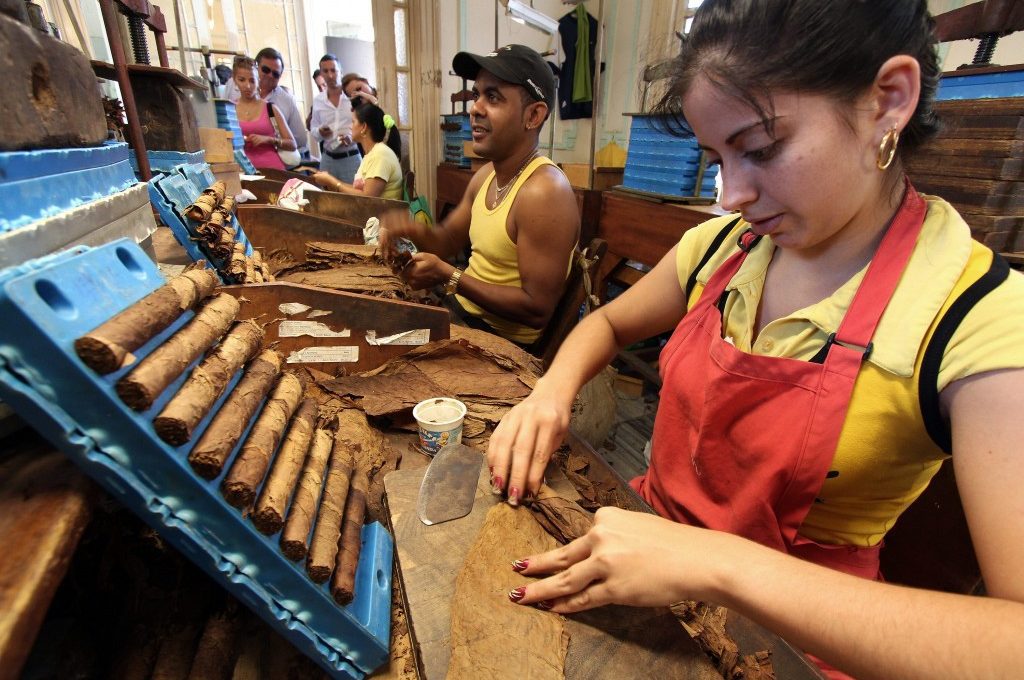3rd July 2023
Plans being discussed, intended to transform Cuba’s state enterprises are likely to be transformational and possibly socially and politically challenging, according to remarks made during a recent discussion on the flagship television programme Mesa Redonda.
Although the detail of the changes envisaged is yet to be agreed, Johana Odriozola, the Vice Minister of Economy and Planning, told viewers that socialist state enterprises are likely to undergo a significant transformation, requiring a design that is less administrative and more about financial economy.
Odriozola noted that this will follow from the introduction of a new law for state companies that will see more powers being granted, structures being modified, and their autonomy deepened.
In her remarks, she stressed, however, that a change in the law will not be enough. “This will be the institutional and regulatory framework that designs the causes of the company’s operation; but of course, we need other transformations in the functioning of the economy that allow the company to be a company,” she said.
Also appearing on the programme, the respected Cuban academic, Professor Ileana Díaz, the Director of the Centre for the Study of the Cuban Economy at the University of Havana, stressed the need to change the environment in which Cuban state-owned companies operate.
If they are to achieve the efficiencies the country needs to develop, and they are to deliver economic growth based on better results, greater exports, and fewer imports, “we don’t have to be afraid of the market,” she said, “The market is regulated by the state.”
Setting out what many would see as a basic description of a social market economy, Díaz went on to note the need to relate prices and wages to the market and the need to have access to resources not administratively but through profitability and efficiency. “If you have the money to access, you will be able to buy in the market; [if] you don’t have the money, you won’t be able to enter. If a company is more efficient, it will have better conditions for access”, she observed.
Relating this to the need for companies to make profits to generate wealth for the national good she told viewers: “But you have to make the company create wealth and profitably create wealth with a higher percentage of profitability. Why? Because to the extent that you create wealth, you not only satisfy the needs of the population but also those of the State, because you will pay more taxes and you will have greater contributions to the State budget. ”
In her remarks Díaz indicated that the practice of “homologism” or the creation of identical norms for every Cuban state company cannot continue in future.
Indicating that “no company is equal to another, even if they produce the same thing,” any more than their workers, managers or history are the same, she went on to say that the business law that is being considered “would put an end to comfort zones” and give companies autonomy.
“If we don’t do that, it’s salt and water. The Constitution of the Republic says that the state company is autonomous but in reality it is not completely so, since many times it has to wait for countless authorisations,” she said. In future, she noted, the idea is that the company will operate in an environment where it can exercise and make business decisions and so make greater contribution to the country.”
Observing that the process of change would be gradual, Diaz went on to note that it will be possible in future that some companies go bankrupt. “Some companies are born, and others die. It happens in human life and in companies the same,” she stressed. In doing so she cautioned that the changes that are expected to be introduced, albeit with some modifications, cannot be undertaken overnight.
Confirming that there will be different classifications of companies (Cuba Briefing 19 June 2023) relating to their role in the economy and this will see some to be allowed to act and manage independently, she stressed that in such cases the state would demand results in return. “An environment where I am going to give you autonomy, where I am going to allow you to search the markets, where you can command within your company, I am also going to demand results from you,” Díaz observed.
In her remarks she however cautioned that as change is introduced other Cuban factors and constraints will have to be taken into account. The Head of the Cuban Centre for the Study of the Cuban Economy noted that the process will have to “go little by little” towards what is required, “creating the markets that are necessary such as the foreign exchange market, the input market, the labour market.”
“The day we achieve a functional currency market, we will be in better conditions to be able to make a transition from what we have today to find that the company really has autonomy and can operate”, she stressed.
She however warned, “You cannot remove a mechanism from now to later in the economy, because it will fail.” “It is vital to change those rules of the game” she noted, emphasising that there was no value in undertaking a macroeconomic stabilisation programme if at the same time there was not a programme that will see the structural transformation of the economy involving state companies. “This is what will provide the possibility of macroeconomic sustainability in decisions”, if made gradually, she said.
The draft business law is expected to be published and considered later this year then go to the Cuban National Assembly in December.
The Caribbean Council is able to provide further detail about all of the stories in Cuba Briefing. If you would like a more detailed insight into any of the content of today’s issue, please get in touch.
Source: Cubahora





